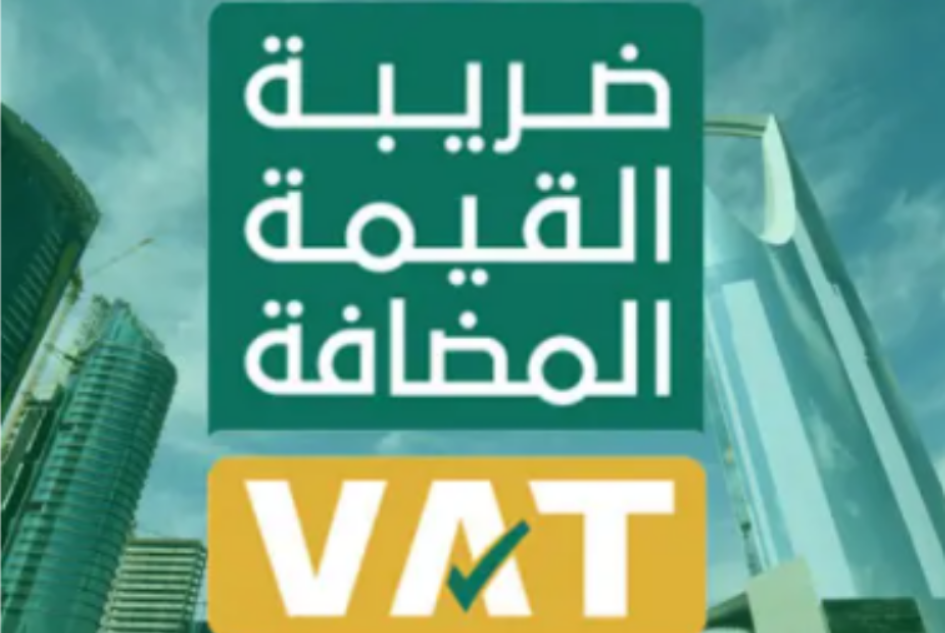Frequently Asked Questions About Value Added Tax (VAT)

Frequently Asked Questions About Value Added Tax (VAT)
1. What is Value Added Tax (VAT)?
Value Added Tax (VAT) is an indirect tax imposed on all goods and services that are regularly and continuously bought and sold by taxable persons, with certain exceptions. VAT is applied at each stage of production, distribution, and up to the point of sale to the final consumer. It is mandatory for any individual or entity engaged in economic activity whose annual taxable revenue exceeds 375,000 Saudi Riyals.
2. What is the Role of the Zakat, Tax, and Customs Authority Regarding Value Added Tax (VAT)?
The Authority is the entity responsible for implementing and managing VAT in the Kingdom. It is in charge of registering and deregistering taxpayers, managing the process of filing tax returns, and handling tax refunds. Additionally, the Authority conducts tax audits and inspection visits related to VAT compliance. It has full authority to impose penalties on entities that fail to comply with the VAT law and its executive regulations.
3. How Can a Taxable Person Determine Whether They Are Required to Register with the Authority for VAT Purposes?
All taxable persons whose annual taxable supplies exceed 375,000 Saudi Riyals are legally required to register with the Zakat, Tax, and Customs Authority for VAT purposes.
The registration period for entities with annual revenues below 1 million Saudi Riyals was extended until the end of 2018, in accordance with the transitional provisions stipulated in Article 79 of the VAT Implementing Regulations.
Taxable persons (whether natural or legal persons) who supply VAT-taxable goods or services with annual taxable supplies exceeding 187,500 Saudi Riyals but not exceeding 375,000 Saudi Riyals are eligible for voluntary registration with the Authority for VAT purposes.
Natural or legal persons whose annual taxable supplies are below 187,500 Saudi Riyals are not eligible for VAT registration.
4. What Is the Mandatory VAT Registration Threshold?
The mandatory registration threshold for VAT is 375,000 Saudi Riyals in annual taxable supplies.
5. What Is the Minimum VAT Registration Threshold?
The minimum threshold for VAT registration is 187,500 Saudi Riyals. However, registration at this level is voluntary and not mandatory.
6. Who Is Required to Register for VAT?
Natural and legal persons who engage in an independent economic activity with the intent of generating income are required to register for VAT.
7. What Is the Applicable VAT Rate?
The standard VAT rate is 15%, though some goods and services are subject to a 0% VAT rate. For more details on zero-rated supplies, refer to Chapter 6 of the VAT Implementing Regulations.
8. How Can I Benefit from a VAT Certificate?
The VAT registration certificate serves as proof of an individual’s or entity’s VAT registration. It is issued for all activities linked to the taxpayer’s unique identification number and must be clearly displayed at the business premises or on the online store.
9. What Is the Impact of VAT on Prices?
In general, taxable persons (both natural and legal) will not incur additional costs beyond what they previously bore before VAT implementation for goods and services purchased from other taxable persons. Costs should not change significantly because taxable persons can deduct input VAT from their output VAT, subject to the conditions set out in the VAT Agreement, Law, and Implementing Regulations. However, the final consumer (the last stage in the supply chain) will bear the VAT cost and will not be able to deduct it.
10. Will VAT Registration Affect a Taxable Person’s Competitive Advantage Compared to Non-Registered Businesses in the Same Sector?
No, registering with the Zakat, Tax, and Customs Authority for VAT purposes does not impact a business's competitive advantage compared to non-registered businesses in the same sector.
When a taxable person registers for VAT, they pay VAT on inputs to suppliers within the supply chain. They must also charge 15% VAT on taxable supplies provided to customers. However, they can deduct or recover the input VAT paid from the VAT collected on outputs. In contrast, non-registered businesses bear VAT on their inputs without the ability to deduct or recover it. As a result, they pass the cost onto their customers as part of the total price of their supplies.
11. What Is the Relationship Between VAT and the International Financial Reporting Standards (IFRS)?
VAT and IFRS are two separate systems. IFRS refers to accounting standards, while VAT is a tax system. ـ
12. Is VAT Imposed on All Goods and Services in the Kingdom?
Generally, all goods and services in the Kingdom are subject to VAT, with certain exemptions specified in the VAT Implementing Regulations.
13. Does VAT Apply to Imported Goods?
Yes, as per Article 14 of the VAT Implementing Regulations, VAT is imposed on the importation of goods into the Kingdom.
14. Is VAT Applicable to Rent?
Commercial property rentals and licensing of real estate (other than residential properties) are subject to VAT. Residential property rentals are exempt from VAT and the Real Estate Transaction Tax (RETT).
15. Is VAT Imposed on the Sale of Land Exceeding One Million Riyals?
The sale of real estate, whether residential or commercial, is not subject to VAT. Instead, it is subject to the Real Estate Transaction Tax (RETT) at a rate of 5%. ـ
16. Are Supplies to Government Entities Subject to VAT?
Yes, supplies to government entities are subject to VAT. The responsibility for collecting and reporting the tax lies with the taxable person supplying the goods or services. ـ
